That Time Someone Called Me “Fat.”
Rescued in H-Mart
Several years ago, my mother and I went to the local H-Mart–the first one to open in Chicago. Tucked away in Niles, Illinois, a quiet-ish suburb of Chicago, this massive Korean grocery store boasted a sprawling parking lot that provided for tons of jockeying between impatient shoppers, cheap grocery carts, sojourners who simply wanted a quick bite to eat from the market’s food court.
Going to H-Mart was always that–a journey, of sorts. It was far enough away to require some advanced planning and because it was one of the few places in Chicago that carried not just an unprecedented array of Korean ingredients and produce, but housed dozens of small Korean-owned shops–purveyors of anything Korean, from skincare products to oddly shaped socks to mortgages from an accredited Korean-owned bank–we prepared for our trips with long lists of items that required replenishing.
H-Mart was, in a sense, a tiny little sliver of Korea right in the middle of Illinois. You could speak Korean without getting strange looks. You could gossip freely with the salon stylist about the most recent scandal rocking your church without having to explain how to handle Asian hair. You could spend as long as you needed perusing all the different kinds of kimchi without wondering whether someone might eventually complain about the smell.
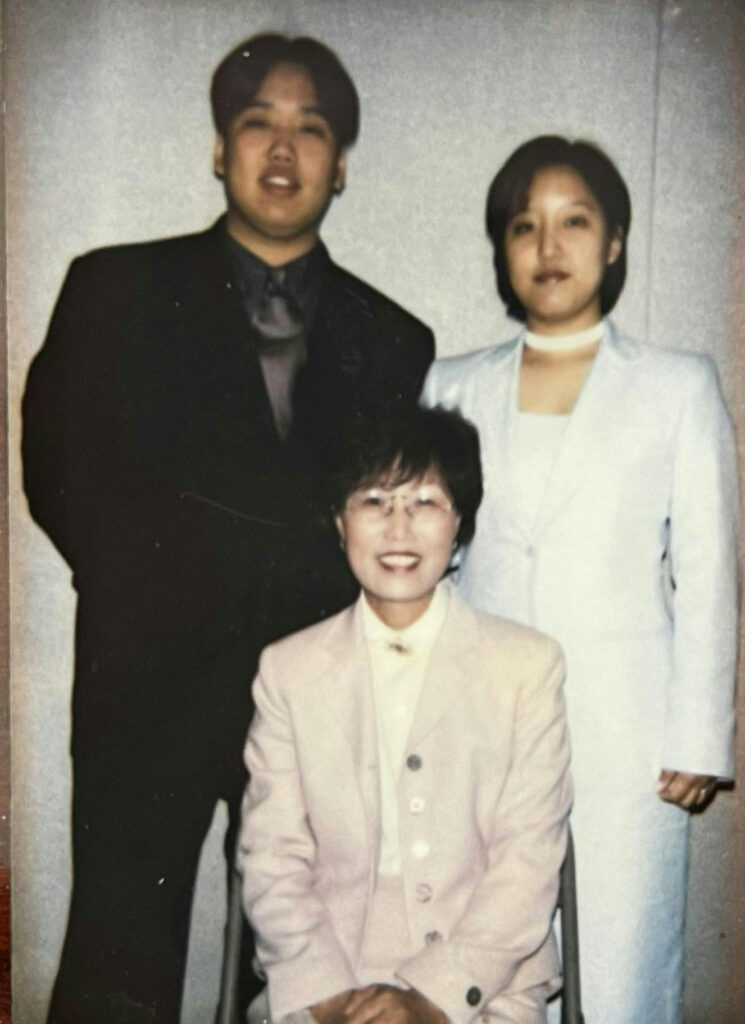
It was a cold day. I stuck my hands in my pockets as soon as we got out of the car. I was wearing a new jacket that I’d bought from Abercrombie & Fitch. It was lined with wool and did a pretty decent job of shielding me from the wind, at least from the waist up. Omma was wearing her full-length puffy down coat, the one she favored whenever she walked her dog Charlie–no matter what time of year, because Omma was always cold.
For as long as I could remember, Omma’s hands were like blocks of ice, her narrow frame on the edge of shivering. Right after getting married, she’d gone on the pill, but soon discovered that she was allergic to birth control. Her allergy caused massive nerve damage and she nearly died. Ever since then, she’d had terrible circulation.
Which is why my mother is always cold.
Perhaps because I couldn’t remember a time when Omma wasn’t cold, I always assumed her inability to keep warm was related to her size. For my entire life, Omma has been small, fragile, delicate. Growing up, I used to think of her as a bird, one that needs to be handled with utmost care so as to avoid breaking her bones. Whereas I… I grew out of my mother’s hand-me-downs when I was only 10 years old. Once, a woman at church exclaimed right in front of us, “How did someone as small as you” (gesturing at my mother) “give birth to someone… well… as large as her?” (eyeing me).
I was the cow to my mother’s bird, fumbling clumsily around, trying not to shatter my Omma’s porcelain-like bones. And unlike Omma, I was always sweating and hot, as if the mere act of carrying around my girth required the kind of exertion that would break my small mother.
The “swoosh” of the automatic doors let out a gust of warm, welcome air as we crossed the threshold and into the thrumming supermarket. Almost instantly, the smell of roasted walnuts and candied sugar pulled our gaze towards a tiny, honey-colored walnut cookie shop adjacent to the produce area. Small paper bags with delicate pink print sat primly on display behind the floor-to-ceiling windows that encased this cheerful little bakery.
“Walnut cookies” or “hodoh gwajah” are small, round pastries, about the size of a gumball, stuffed with red bean paste and walnuts. They are typically cooked like waffles (i.e., on the stovetop and not in the oven) in a mold shaped like the insides of a walnut. I never really liked hodoh gwajah, but the bright yellow panes, together with the aroma of caramelized sugar, was simply too inviting to ignore. “Let’s get some hodoh cookies before shopping,” I suggested.
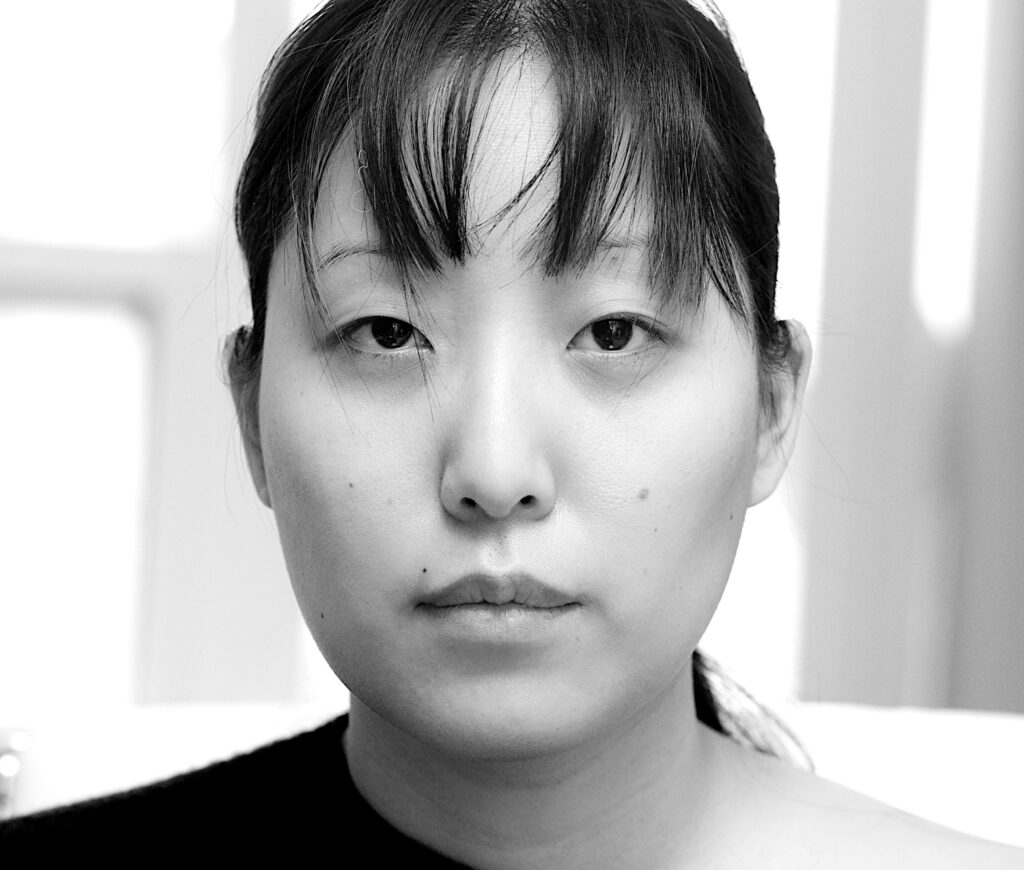
Apparently, I wasn’t the only one who fell captive to the allure of the hodoh-cookie that day. A long line of ruddy-cheeked patrons greeted us as we entered the cramped bakery. A woman at the cash register frantically rang up guests while trying to keep up with the quickly diminishing supply of samples on a tray next to her. Omma got in line while I browsed all the different gift boxes, intricate arrangements of puckered pastries. As she got towards the front, she offered me a sample from the tray, which I happily accepted. It was still warm, the red bean paste still gooey.
As Omma told the clerk manning the register how many bags she wanted, the customer behind us, a tallish woman with short hair tucked behind her ears, wondered out loud in Korean, “Oh, I hope there are samples left when I get up there.” I asked Omma to hand me a sample and I offered it to the woman behind us.
“Ew. I don’t want something this weird, fat, Chinese lady touched,” she continued in Korean, right to my face.
I felt my face growing hot, almost like an out-of-body experience. Surely, this woman had not just said this thing to me in the middle of a bustling store, where everyone could hear her? Because people like this–mean, ugly, racist people–they didn’t exist, right? Even as my disbelief rolled through me, there was another idea that burrowed itself like a thorn into the softest parts of me:
She’s not all wrong. I’m not Chinese, but I am fat. And that makes me weird. And unclean.
Instantly, I regretted wearing my new jacket. The wool lining was suffocating, the collar not large enough. My skin felt tingly as a familiar dread crept up my neck, ears and the back of my head. I wanted, more than anything, in that moment, to disappear. The need to shrink into invisibility is a cruel sort of desperation when you’ve spent your whole life feeling too big. I’ve always been larger than the average Asian woman, and, at that time, I was larger than I’d ever been in my entire life (a whopping 180 lbs to my 5’1″ frame). There was no place for someone of my size to hide–I was not just bigger than any other person in that busy little store that day, I was too big to hide behind the displays of walnut cookies. I was too big to disappear inside the shadows of the electric heater keeping the cookies warm.
I was too big to hide behind my little mother.
I was about to hand the sample back to Omma and carry myself gingerly out of the store, feeling more like that clumsy cow than perhaps ever in my entire life, when I heard someone whisper:
“What did you say?”
And again,
“What did you just say?”
Followed by,
“You are a horrible person!! How dare you speak that way to my daughter??”
I had heard this voice before. Indeed, its blistering savagery was one I’d heard with disturbing regularity. But it was not directed at me, this time. I turned around to see my mother practically bristling, almost bouncing on her toes as she reiterated,
“You are a horrible person,” followed by the devastating,
“What is wrong with you?”
The target of Omma’s tirade raised her hands as if in self-defense, protesting, “Oh, oh, I didn’t realize you are Korean! It was a mistake, just a mistake!” as if she’d merely mispronounced my name or accidentally cut in line. But my mother’s onslaught continued, unabated.
And, amazingly, in English.
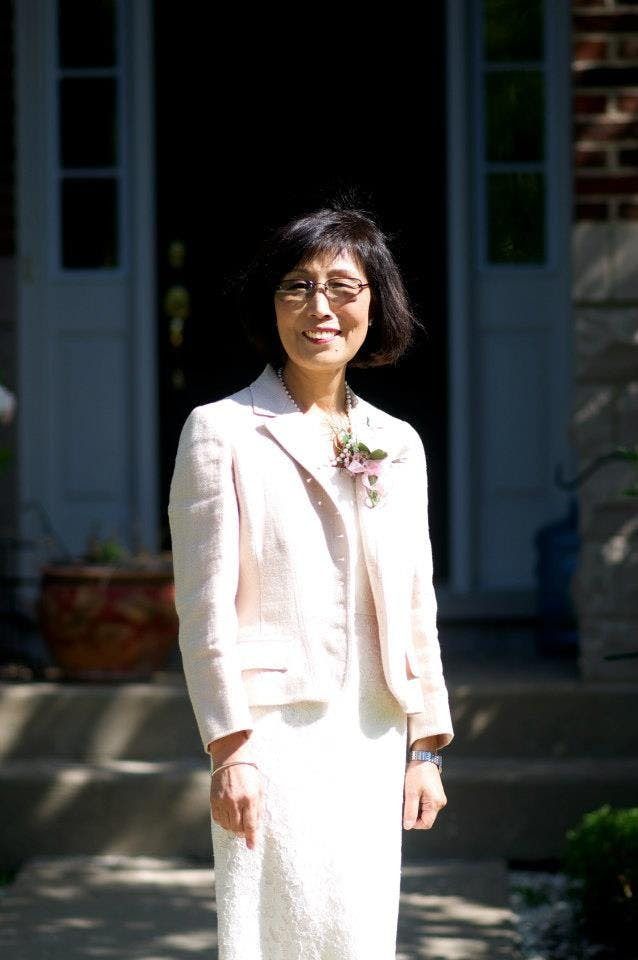
Omma once told me that she used to get criticized for her pronunciation of English words, words that were typically challenging for native Korean speakers. Most of her peers spoke a rude sort of “Konglish”–a mix of Korean and English words accented in such a way that they rolled together rather seamlessly. But Omma’s Korean was often disrupted with perfectly articulated English, and it made her stand out. People whispered behind her back that she was putting on airs, lording her command of “American” over everyone else. Over time, she would purposely mispronounce English words to avoid this kind of thing.
But not that day.
She repeated, over and over again, “What is wrong with you?” and “You are just horrible!” and “How can you say something like that?” in pristine English, until she was eventually carted out the front door for causing a scene.
And it was in that moment, watching the clerk escort her out of the little glass bakery, that I realized that Omma wasn’t that small after all.
At least not too small to cover me.
Can you remember a time when you felt particularly vulnerable? And someone unexpectedly came to your rescue?
This Week’s Recipe Inspo.
I’ve been adding new recipes to my blog every week for the past month and it’s been extremely fun, but also a lot of work! In case you’ve missed them, here’s a recap of some my favorites (click for the recipe):
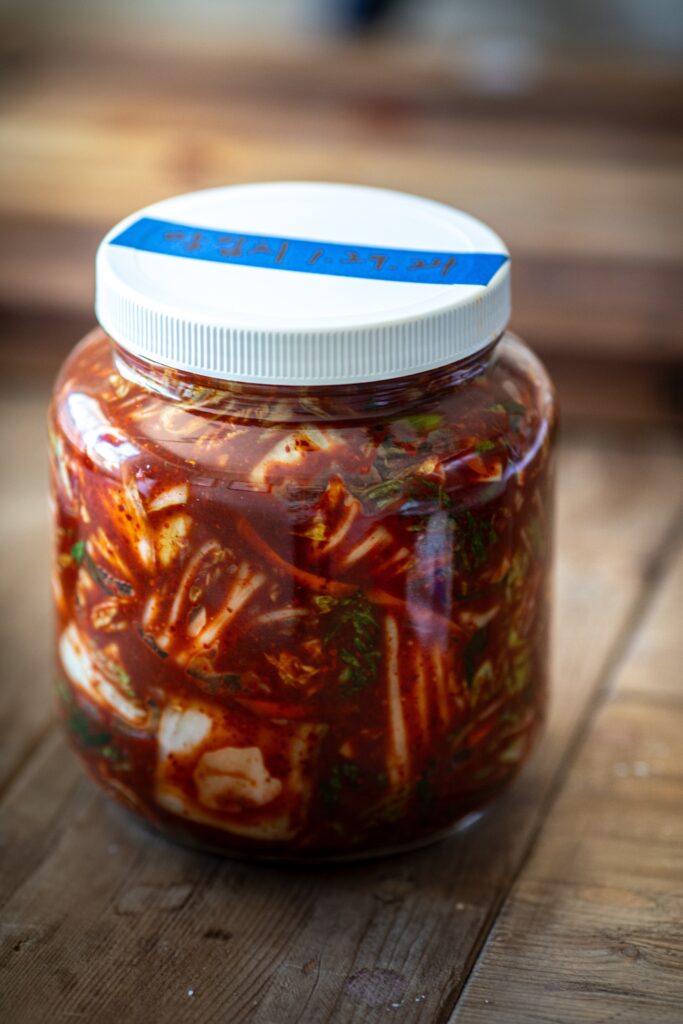
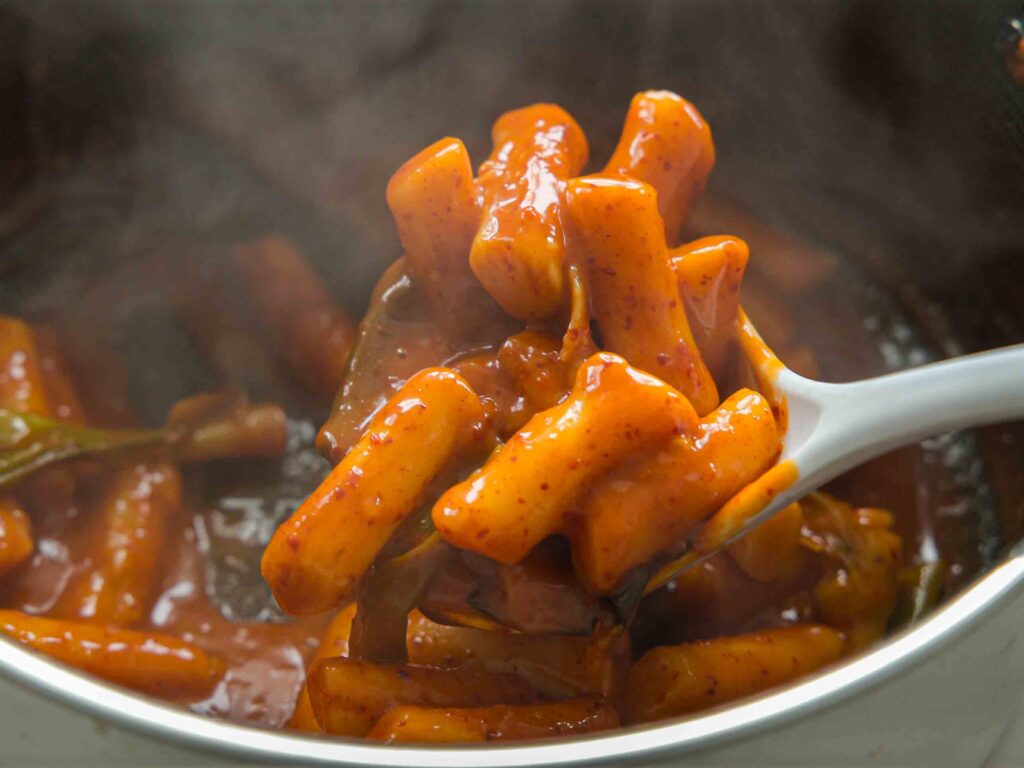
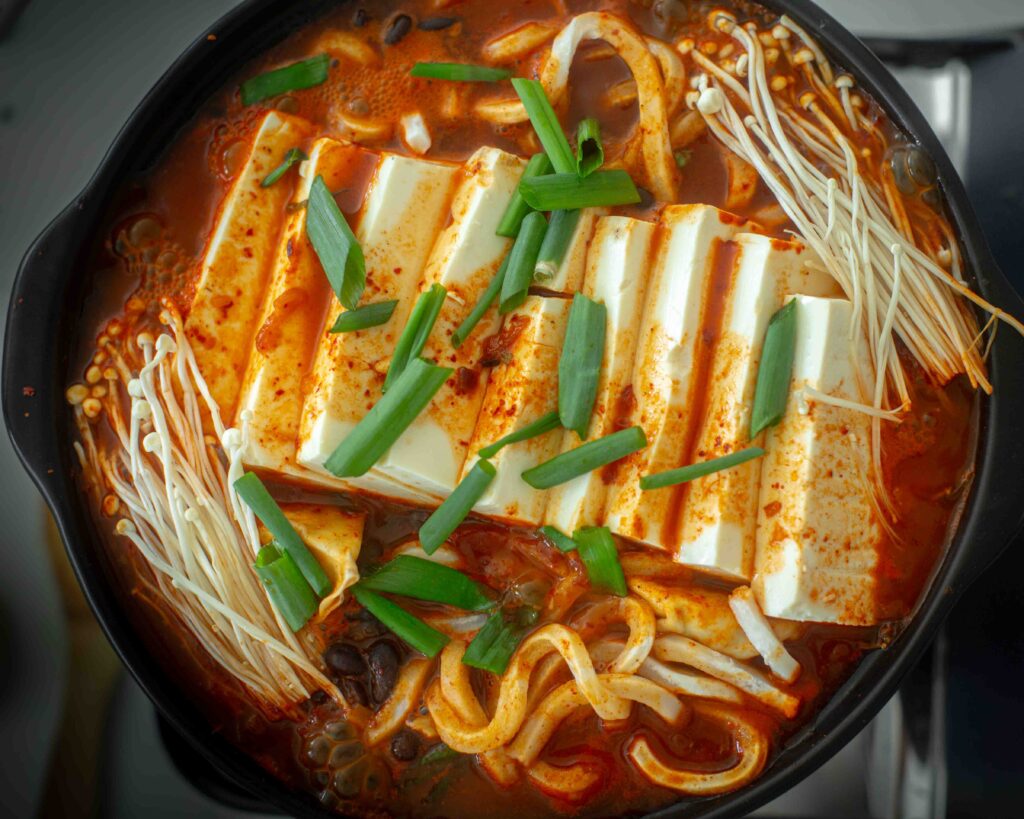
What I’m…
- Watching. I’m deep into Queen of Tears and thoroughly enjoying the story. It’s actually been a minute since I was this addicted to a Korean drama and I was crestfallen to discover I will need to wait a whole ten days before it finally wraps up!! As I mentioned last week, I predicted the outrageous behavior of the female lead would ultimately lead to a satisfying catharsis, and we are right on track for said payoff! If you haven’t jumped on the bandwagon yet, I highly recommend it! Watch –>
- Reading. Somehow, the mega-talented R.O. Kwon noticed my fan-girling on Instagram, and subsequently provided me with a sneak peek at her highly anticipated second novel, Exhibit. When I say this woman is “mega-talented,” I mean brilliant, scintillating, so freaking good. Her second novel centers around the relationship between two women who are both at a crossroads in their careers. Kwon is known for tackling the taboo with a stark sort of poesy, a tender lyricism that masterfully demonstrates the power of incremental tension. I’m excited to finish reading this novel and I highly recommend you order your copy now! Read –>
- Eating. As you all should now by know, I am not above getting some help in the kitchen, especially after a long day of work. My husband and I have been trying to incorporate more pulses (i.e., lentils, chickpeas, split peas, etc.) into our diet and have found these Tasty Bite packets to be a game changer!! They come in so many different flavors, the majority of which are vegan, and are so easy to prepare. I braise some greens in a little vegetable broth, upend the contents of one of these bright yellow pouches, cook for a few minutes and DONE!! Dinner is SERVED! Shop –>
Parting Thoughts.
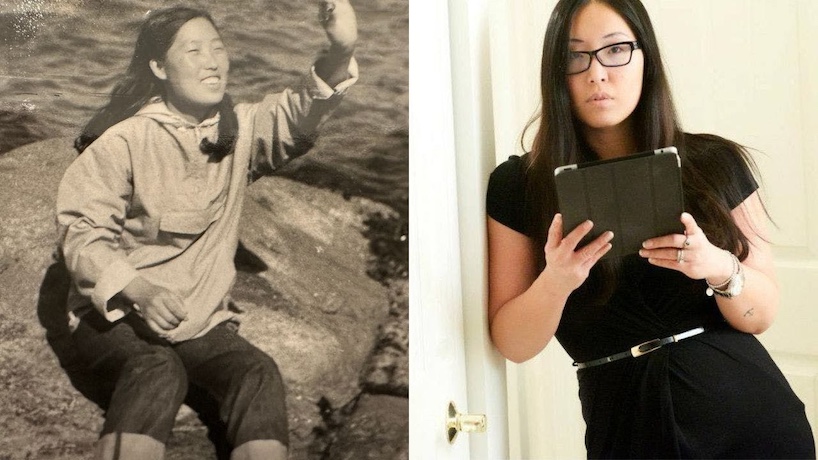
I’m turning 45 this week. And the strangest thing of it all is that I feel almost exactly the same as the 15-year old girl who looked up to and feared her mother, Sunny, who was, at that point, the same age as I’m about to be. Isn’t it weird when we think about how intimidating, awesome, and all-knowing we believed our parents to be and then compare that to how uncertain, insecure, and even terrified we feel on a daily basis when we are now the same age as them? Was Omma as unconfident about life as I am? Did she agonize over her decisions the way I do? When she yelled at that woman at H-Mart, did she ever stop to second-guess herself the way I would have?
Many years ago, when I still lived in Wheeling, Illinois, I bumped into my next door neighbor while walking my dog. She was carrying a large box to her car–it appeared she was moving out. I stepped aside to make room for her on the sidewalk and to guard against my dog getting in her way. As she passed, I mumbled, “I’m sorry”–a habit, a phrase I often use interchangeably with “excuse me,” or “pardon me.” I never in a million years expected her to respond,
“Yeah, I’ll bet you are.”
For a second, I stood stock still, letting her words sink into me. I swiveled around and hurled the following retort at her back:
“ExCUSE me? Do you have a problem?”
She turned around and marched right towards me, still carrying her cardboard box. “Yeah, I’ve got a problem. Here’s my problem.”
And I sort of already knew what was coming:
“You people are ruining the neighborhood.”
I arched an eyebrow at her. My dog, Billy, sat at my feet. “‘You people,'” I repeated, testing the shape of the words in my mouth like an exotic new food. And then, I looked straight into her face as I said,
“What a racist thing to say.”
Not surprisingly, she instantly replied, “this has nothing to do with race.” The explanation that ensued, of course, confirmed that her statement had everything to do with race–she complained about me and my then husband (both Korean), my parents (both Korean), and the family across the way (also Korean).
Later that evening, when I recounted the matter to my mom, she whispered, as if in awe,
“I can’t believe you did that. I would never have been able to do that.”
To which I said,
“Omma. How do you think I learned to do that?”
Wishing you all the best,
-Joanne

Comments & Questions
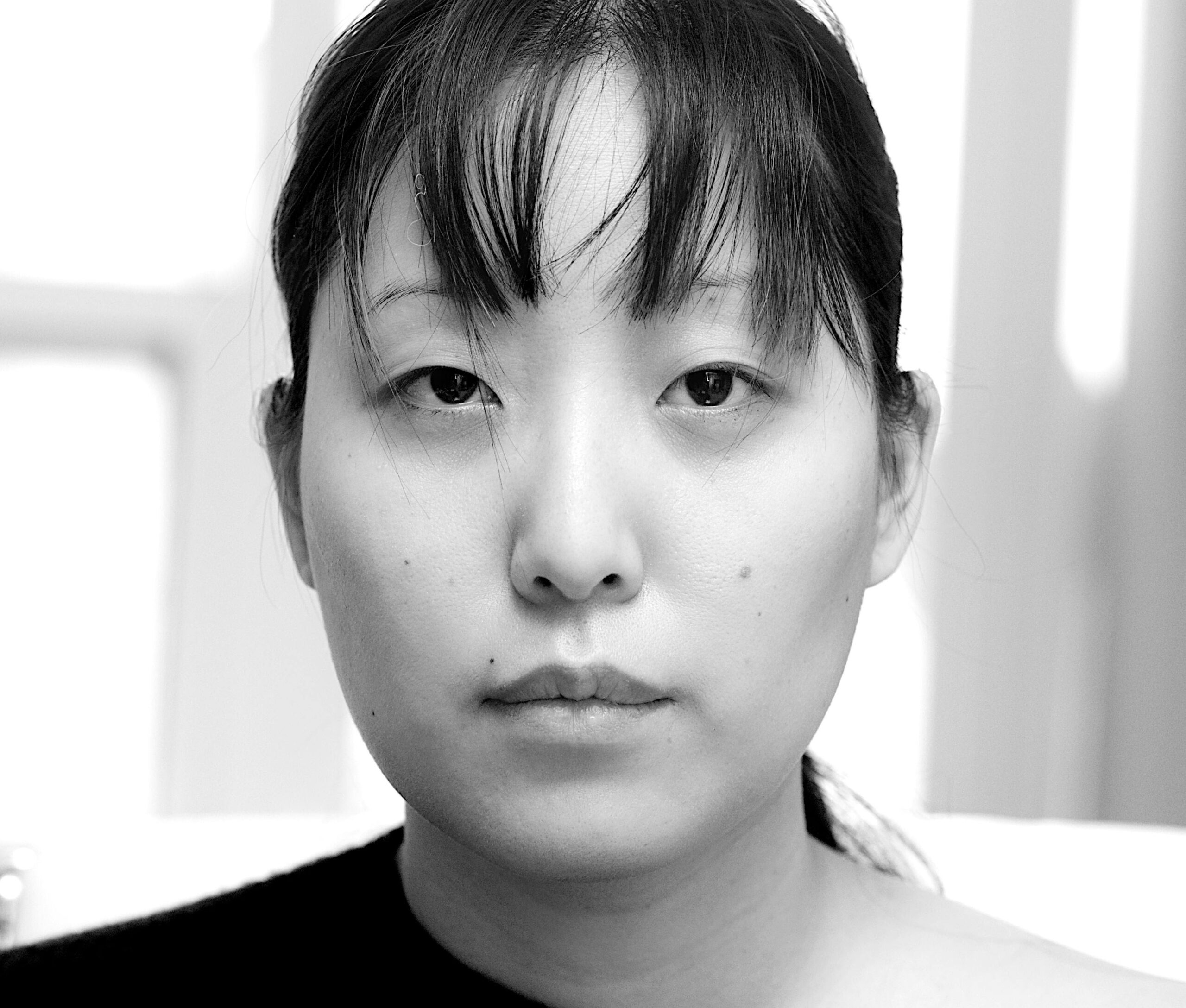
April 22, 2024
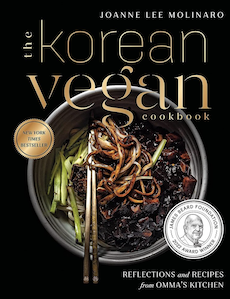














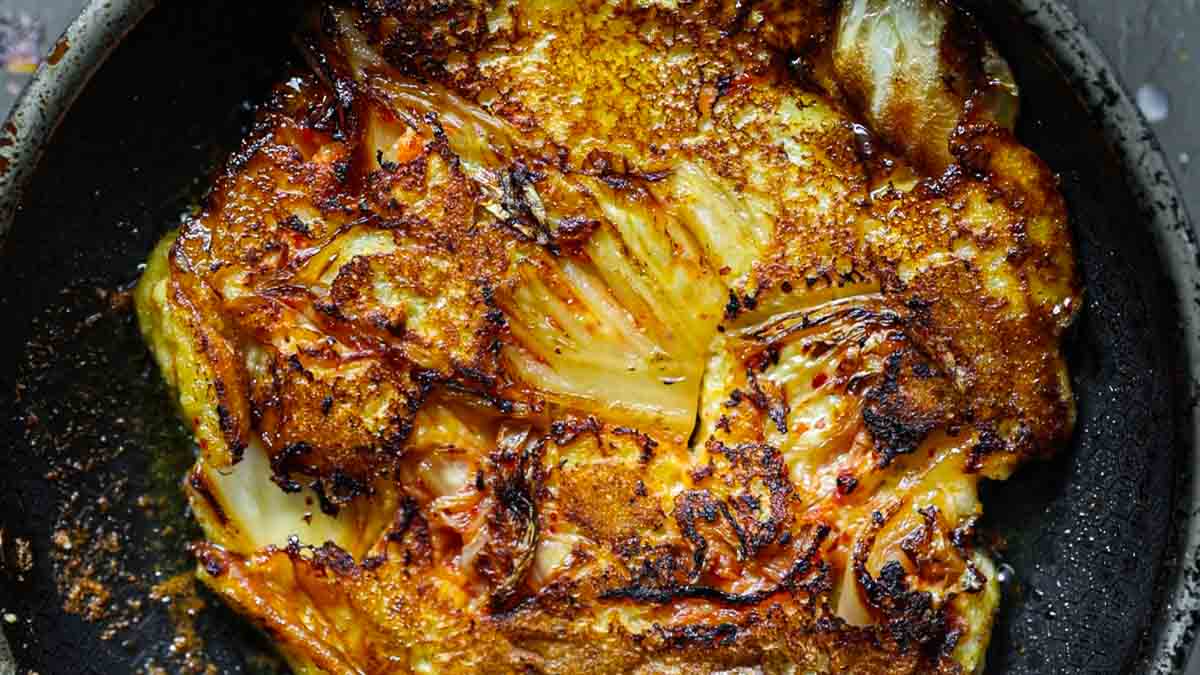
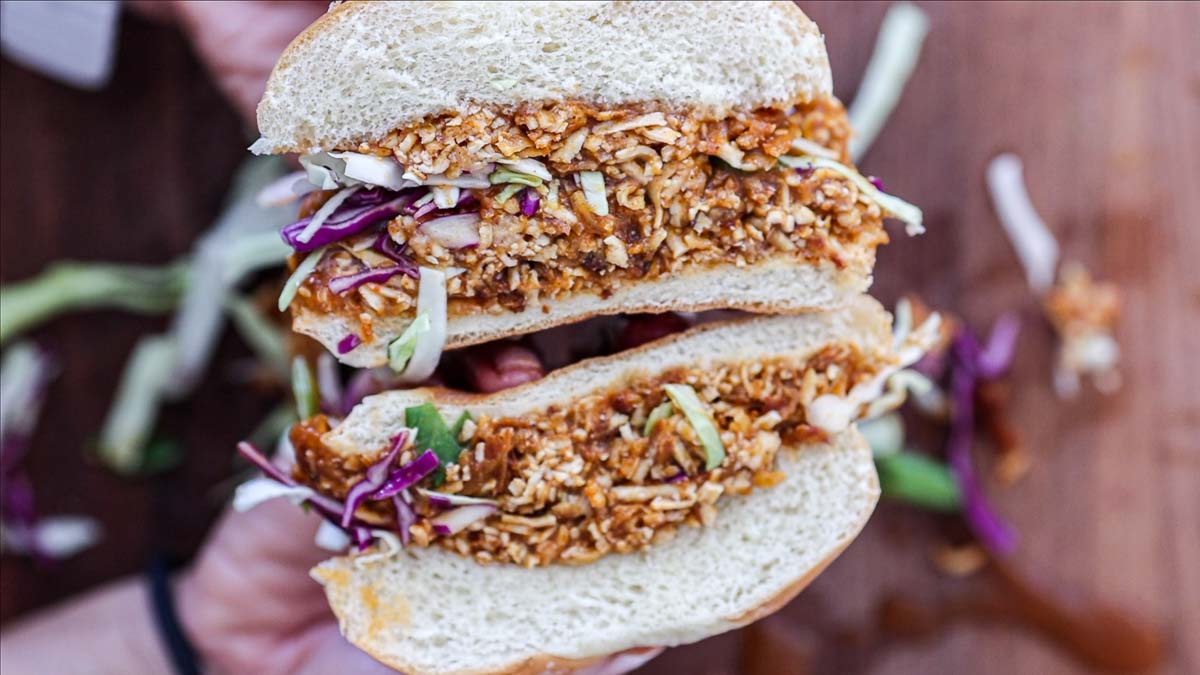
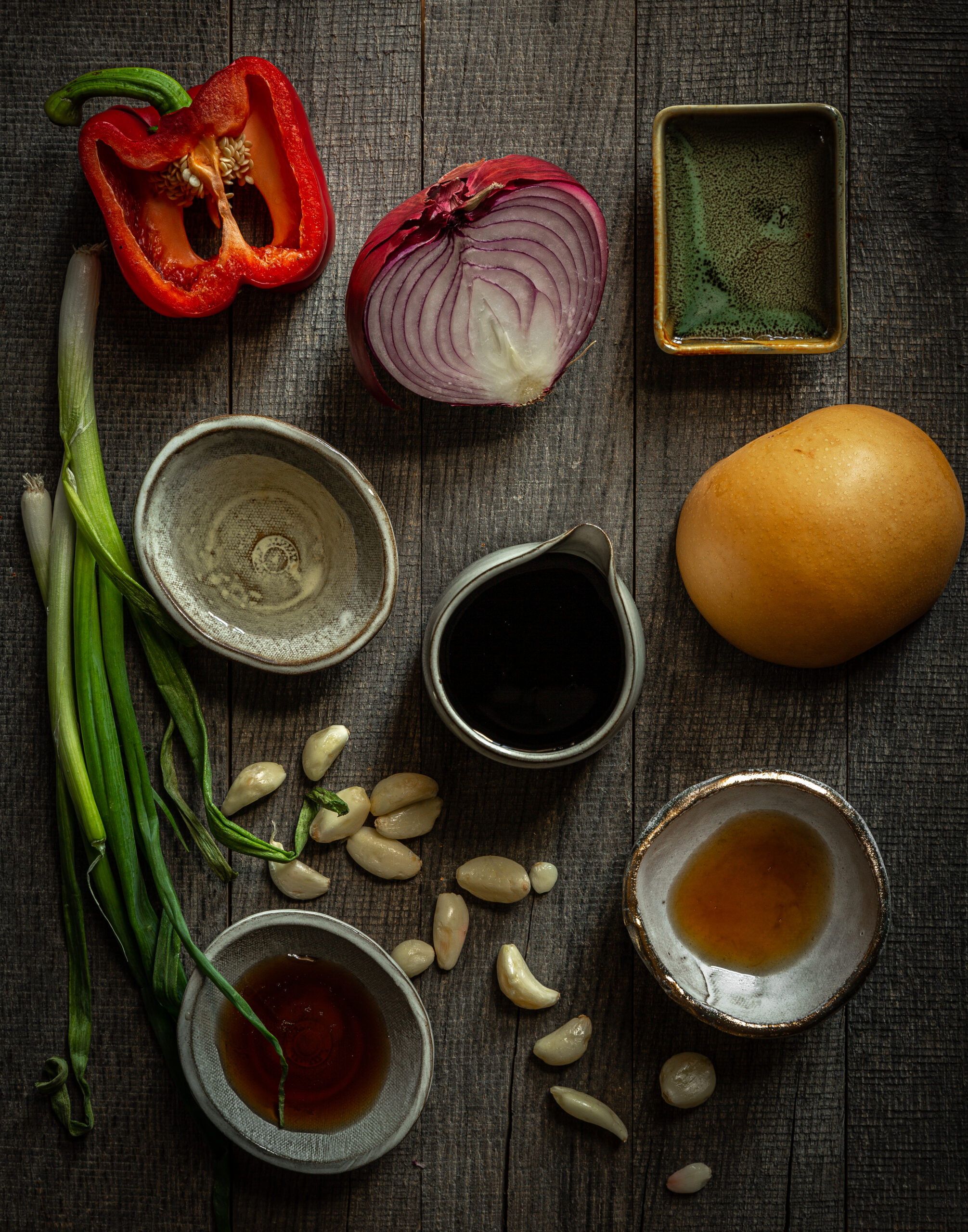
My mother is white and my father is black, so I’m light skinned, with a looser curl to my dark hair. When I lived in Los Angeles, I hung out with my good friend Ursula who are we seem to know how to carry herself and all the places I wished I could feel at home. Her skin was darker than mine, her curl pattern tighter. But the biggest difference was confidence and style. We pulled up to a corner key maker one day and I stayed in the car. The Black key cutter kept looking at me as he made her key, finally asking loud enough for me to hear, “She ain’t black, is she?”. It sounded like an accusation. As if I didn’t belong in the neighborhood. Ursula casually looked over at me and replied back, “as black as you and me .” I felt a wild pride and gratitude swell inside me, I have never forgotten the way I felt covered and legitimized that day.
I want to channel the bravery of your mother in this story to call out those horrible things. And stand up for you. I hope next time I witness something like that I loud and proud speak my truth. Thanks for sharing.
You are a wonderful writer, thank you for sharing. I felt that familiar hot humiliation bubble up inside me just reading this story, and teared up at the feeling of having your mother stand up for you. As part of the Asian community, I know the feeling all too well of having to brush off disgusting racist remarks, and I’d like to think my Malaysian mother would do the same. If it were me, I would have eviscerated that woman with my words. The sheer fury I feel every day that there are people like that, that are so vile and make others feel so small. You and your mother are gorgeous, and seeing that photo of her made me smile. Sending love to you and your family!
Wow! Joanne, thank you for sharing this story! Both my parents have passed and your story has inspired me to write down the memories I have of my parents and their history.
❤️❤️❤️
Wow, I teared up at this story. I completely sympathize with how you felt. You asked if anyone ever stood up for me? When I was 8, my mother left my dad and we moved from New England to the South. Not only was I a glasses-wearing, adorable little nerd, but my Northern accent apparently was hilarious to many. One day, feeling lonely, I walked blocks to my neighborhood 7-11 with a quarter to buy as much candy as I could. I asked the clerk, an older guy, where the candy was, and he broke out laughing. He called over two other guys to listen to this kid with her accent. I was completely mortified and just stood there, parroting back the words they asked me to pronounce. All of a sudden, an angel masquerading as a customer ran up, absolutely blasted them, and put her arm around me to lead me out of the store. It’s hard to think back on a time where an 8-year-old could walk blocks alone to a convenience store — and then feel so ashamed of her humiliation, she remembers it more than 50 years later. People can be so cruel. But, there was that one angel.
Love this story. Thanks for sharing. It’s always good to be reminded how a simple act of kindness can absolutely mean the world to someone else.
When I was 19, still living in Germany with my mom, my then-boyfriend, then husband and ex-husband after only 11 months marriage, standing in my mother’s kitchen after Sunday supper said to me: “You are too fat!”
My mother appeared from somewhere in the house, stood in front of him and said firmly and loud: “Don’t you ever speak to my daughter again in this way!” Then she swung around and planted her hand on his left cheek. He was mortified, and I was furious AT HER!
You already guessed, that wasn’t the only time he spoke to her daughter this way.
I’m not in favor of hitting anyone, but 55 years later I’m grateful she stood up for me – forcefully.
This is beautiful. I wish that I had a mother who would stand up for me rather than either agreeing with the person or telling me that I need to toughen up. Sometimes, you just need someone in your corner.
100%!! My Asian mother has definitely done this as well. Compliments were also far and few between. Sigh
Beautiful stories and I like how your Omma leading by example came full circle in empowering you to do the same. I had the opposite experience as a child, where my parents never spoke up for themselves or for us and that sat with me for a long time. Even today, I often find myself deferring or staying silent or apologizing for things that I have no reason to apologize for. I’m fortunate to have found a partner in life that does fiercely protect our family. Being with her has given me the tools to navigate these interactions more effectively. I am especially grateful, though, for the example it sets for our kids as they know they are protected and, in turn, will protect themselves and their loved ones in the future. I’m happy that your Omma was able to give you that sense of security and comfort in those formative years.
I know your partner has more than a few stories to tell related to this week’s topic. I’ve heard a few of them already! ❤️💪
Ouf…thank you for sharing this story, I know exactly how that felt…I was stick skinny as a child. One summer, as mom and I walked towards the shopping centre, we walked passed another little girl and her mom, who had just pointed at me laughing at my shorts and skinny legs. I instantly got teary-eyed. My mother’s reaction was similar to yours. It was the only time I saw my mom turn into a full on tigress (!!) and the way she came to my défense I will always remember.
“I can’t believe you did that. I would never have been able to do that.”
My mother is the same. She does things and then forgets, and then judge me for doing the same.
I love that so much! “Where do you think I learned that?” So nice for a Mom to hear. Your stories inspire me so much. I love the closeness you have with your parents, your relationship with your Mom. It is very special, as are you. Again, thank you for sharing